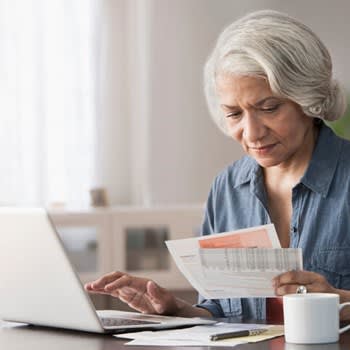What Is a Cashier's Check? A Guide to Secure Payments
- Discover what is a cashier's check, its benefits and drawbacks and learn how to get a cashier's check for secure payments in our comprehensive guide.
Cashier's checks are widely used for different types of transactions. Cashier's checks include an additional layer of security compared to personal checks.
By the end of this guide, you'll better understand cashier's checks and how to get one if it fits your financial needs.
Table of Contents:
- Understanding Cashier's Checks
- Benefits of Using Cashier's Checks
- How to Obtain a Cashier's Check
- Potential Drawbacks of Cashier's Checks
- Why would someone give a cashier's check?
- What are the safety features on cashier's checks?
- Is a cashier's check safer than cash?
- Conclusion
Understanding Cashier's Checks
A check issued from a financial institution, guaranteed by the establishment's funds rather than an individual's, is known as a cashier's check. It’s drawn on the institution’s own funds, rather than those of an individual account holder.
Cashier's checks provide a greater degree of assurance and dependability compared to other payment methods, such as individual checks.
Cashier's checks are often used for large purchases, like buying a car or paying tuition fees. Cashier's checks are also applicable for loan or mortgage payments.
Cashier's checks are considered highly secure, since the issuing institution guarantees their authenticity and value when presented for payment. They offer a secure way to move large sums quickly between two parties, eliminating the potential for fraudulent activity associated with other payment methods.
Although there are many benefits associated with using cashiers checks, there are some potential drawbacks worth noting too. They can take longer to clear when presented at another banking institution and may not always be the ideal option for time-sensitive payments.
How to Get a Cashier's Check
To get a cashier’s check, you must visit your bank or credit union in person and provide the necessary information and payment for the amount of the check.
- To get a check issued, you will need to have the exact amount available in either cash or another form of accepted payment. Most banks require customers to pay with funds from their own accounts when getting a teller's check.
- You should also bring valid identification such as a driver's license or passport so that it can be verified by the issuing institution.
- The issuing institution will then fill out all necessary information on the back of the check including your name, address, account number and any other relevant details before signing it off with an official stamp.
Once finished, two copies of the check will be given – one for you and another to whoever is receiving it – with identical data regarding its issuer and value.
FAQs
Why would someone give a cashier's check?
A cashier's check is a form of payment that ensures the recipient that the funds are ready and have been verified by the issuing bank, making it an assured method for large payments.
Cashier's checks are often requested for transactions such as real estate closings, car purchases and tuition payments where proof of funds is required. They may also be requested in situations where there is concern about fraud or theft with other forms of payment like personal checks.
What are the safety features on cashier's checks?
Cashier's checks are a secure form of payment that can be used to pay for goods and services. They are issued by banks or credit unions, backed by the issuer’s funds, and guaranteed to clear.
Cashier's checks have several security features such as watermarks, signatures from authorized personnel and unique serial numbers.
Before attempting to use a cashier's check, verify its authenticity with your bank and ensure it is payable only to the intended recipient.
Is a cashier's check safer than cash?
A cashier's check is generally considered to be safer than cash because it requires the signature of a bank account representative and can be traced if lost or stolen.
Once gone, cash is not able to be monitored. In addition, since a teller's check is backed by funds from an account at a financial institution, you have greater assurance that payment will not bounce due to insufficient funds in the issuer’s account.
Conclusion
In summary, cashier's checks are a convenient and safe option for making large payments from your bank account without having to worry about carrying around physical currency or waiting on check clearance.
It offers benefits such as being able to pay large amounts of money quickly without having to carry around a lot of physical currency or wait for checks to clear. While there are some potential drawbacks associated with obtaining and using cashier’s checks, they can be avoided by taking the necessary precautions when dealing with them.





